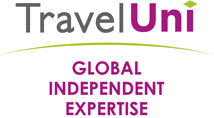To be successful in selling travel we believe that you have to forget ‘selling’ and think ‘buying’.
The idea that anyone sells to anyone is so 20th Century. Let’s face it, by the time the prospective customer (the lead) has got to you they have researched the destination on Google, You Tube and asked their whole social media world for information and advice, not to mention everyone on TripAdvisor, and they have sold to themselves.
In the 21st Century your role is to help your leads buy. To be clear who is who in this piece we shall still use the word ‘sell’ when talking about you but remember, you are just like a doctor, you listen to the problem and then you diagnose your solution: it is all about the lead, not about you.
Consultative Selling then is personal selling in which you play the role of a consultant. You assist the buyer in identifying, or clarifying, their needs, and then suggest products that satisfy those needs.
The 8 keys to Consultative Selling TRAVEL are:
1. Research.
Get to know who your ideal customer is. What are their likes and dislikes? And if you have the time you can Google each individual lead. Also make sure you know what your competitors will offer them. See Who Are Your Travel Agency’s Ideal Customers?
2. Rapport.
People buy from people who are like themselves so find some common ground. It could be their favourite destination, a football team or last night’s soap cliff-hanger. See People buy from people they know, like and trust.
3. Discover.
We wrote about questions here. You want to ask general questions to begin with and then get more specific. Also make them open-ended questions i.e. questions that cannot be answered with just a ‘yes’ or ‘no’.
4. Listen.
This is where the process can fall apart. Too many sales people are inside their own heads at this point deciding what the lead should have rather than listening to what they actually want. The type of listening needed here is called ‘active listening’. You want to understand the meaning behind the words. Check your understanding by asking clarifying questions and repeat back what you believe you heard; but not everything or you will sound weird!
5. Teach.
This one might seem strange but here you need to demonstrate that you are someone who can really help find the right holiday at the right price, for them. You could perhaps educate them on the weather patterns for a particular destination or the pros and cons of a specific airline.
6. The Ideal holiday.
You have asked all your questions and listened carefully to the answers. Now you can summarise what the lead is looking for in a holiday.
“So you are looking for a holiday in Thailand for you and your partner. You would like to stay in a hotel on the beach with a freshwater swimming pool and a gym. You would like to be within a 5-minute walk of local restaurants and you would like a room with sea-view and a double bed.”
7. Qualify.
You need to make sure that the lead is one who has the will and means to buy from you. This is something you should actually be doing before you even speak with them. Your marketing should be giving out the message that matches with your service.
8. Close.
In the old traditional model of selling travel you would be overcoming objections, assuming the sale and telling the lead where to send their money. In consultative selling, having worked through the process and identified a holiday that matches everything that represents their ideal holiday, all you have to do is ask for the sale. A simple “Shall I go ahead and book that?” should do it! Of course there will be times when the process misses something but follow these key principles and expect to see your sales increase.
For more hints and tips to help you take your travel industry career to the next level make sure you follow us on Facebook.




